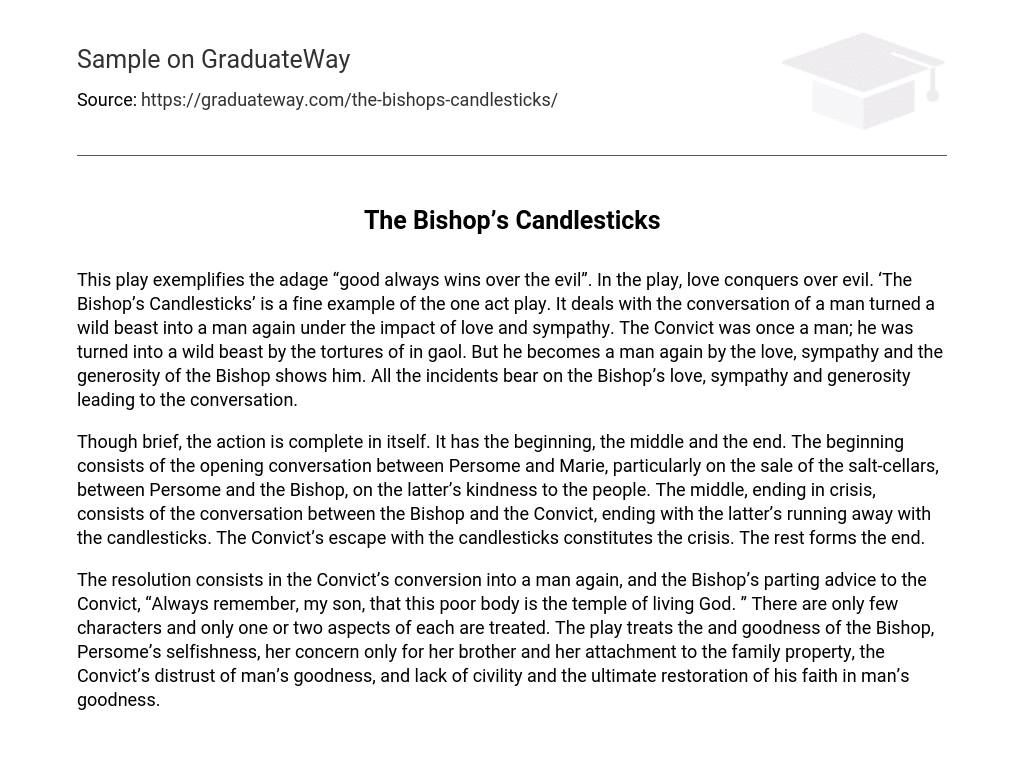This play exemplifies the adage “good always wins over the evil”. In the play, love conquers over evil. ‘The Bishop’s Candlesticks’ is a fine example of the one act play. It deals with the conversation of a man turned a wild beast into a man again under the impact of love and sympathy. The Convict was once a man; he was turned into a wild beast by the tortures of in gaol. But he becomes a man again by the love, sympathy and the generosity of the Bishop shows him. All the incidents bear on the Bishop’s love, sympathy and generosity leading to the conversation.
Though brief, the action is complete in itself. It has the beginning, the middle and the end. The beginning consists of the opening conversation between Persome and Marie, particularly on the sale of the salt-cellars, between Persome and the Bishop, on the latter’s kindness to the people. The middle, ending in crisis, consists of the conversation between the Bishop and the Convict, ending with the latter’s running away with the candlesticks. The Convict’s escape with the candlesticks constitutes the crisis. The rest forms the end.
The resolution consists in the Convict’s conversion into a man again, and the Bishop’s parting advice to the Convict, “Always remember, my son, that this poor body is the temple of living God. ” There are only few characters and only one or two aspects of each are treated. The play treats the and goodness of the Bishop, Persome’s selfishness, her concern only for her brother and her attachment to the family property, the Convict’s distrust of man’s goodness, and lack of civility and the ultimate restoration of his faith in man’s goodness.





